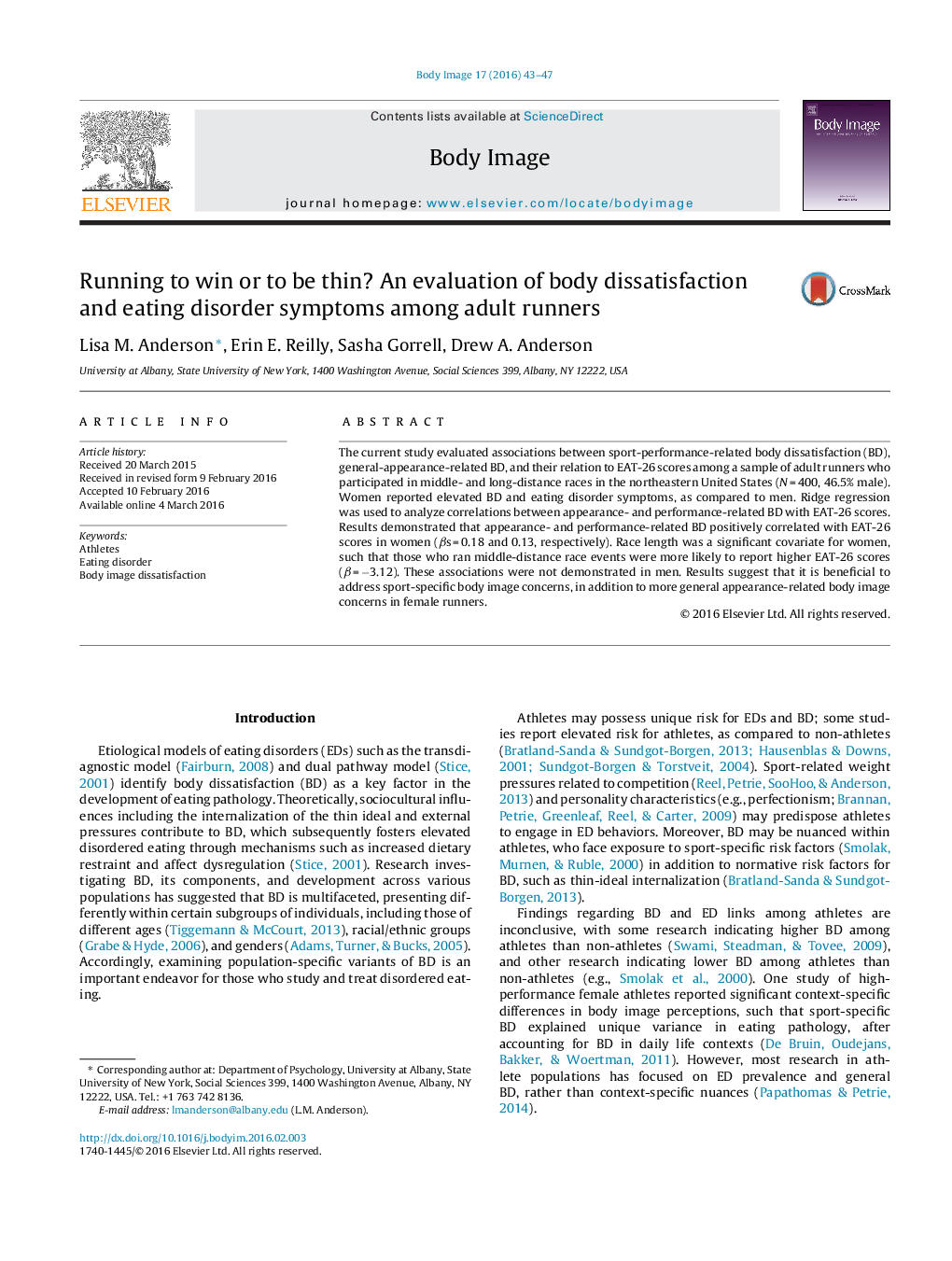| Article ID | Journal | Published Year | Pages | File Type |
|---|---|---|---|---|
| 902647 | Body Image | 2016 | 5 Pages |
•Performance- and image-related body dissatisfaction relate to EAT-26 scores in female runners.•EAT-26 scores were related with middle-distance (5k and 10k) race participation.•Results suggest that sport context may contribute to athlete body dissatisfaction.
The current study evaluated associations between sport-performance-related body dissatisfaction (BD), general-appearance-related BD, and their relation to EAT-26 scores among a sample of adult runners who participated in middle- and long-distance races in the northeastern United States (N = 400, 46.5% male). Women reported elevated BD and eating disorder symptoms, as compared to men. Ridge regression was used to analyze correlations between appearance- and performance-related BD with EAT-26 scores. Results demonstrated that appearance- and performance-related BD positively correlated with EAT-26 scores in women (βs = 0.18 and 0.13, respectively). Race length was a significant covariate for women, such that those who ran middle-distance race events were more likely to report higher EAT-26 scores (β = −3.12). These associations were not demonstrated in men. Results suggest that it is beneficial to address sport-specific body image concerns, in addition to more general appearance-related body image concerns in female runners.
